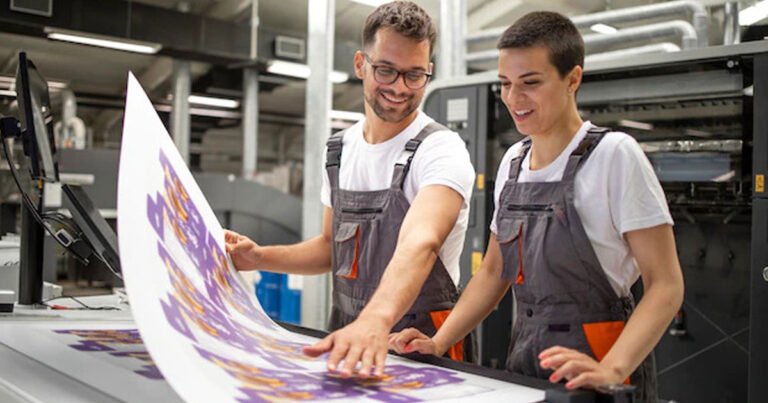Businesses work with print experts to develop promotional media that captures the attention of their client base. Having business cards, flyers, brochures, and other products can help get their name in front of potential customers. Quality printers save time and effort by designing and printing your items in bulk. Here are four reasons why professional printing is needed:
Quality
Professional printers use machines and technology to produce clear and detailed results. Methods such as digital and offset printing reproduce images and text accurately, maintaining the original design’s appearance. Sharper text and clear photos are beneficial for materials like brochures, posters, and banners.
Printers also use software and quality ink to create consistent colors across different materials. Businesses want to use logos, product labels, and greeting cards that reflect their brand design. Print specialists monitor the whole process to make sure the color quality and alignment of the final products are correct before publishing them. Quality prints help businesses to portray a good image and have reliable branding across all their printing.
Range of Material Options
If your company wants personalized prints, specialists can help you choose the right materials that meet your budget. Glossy paper is suitable for making brochures, flyers, and posters that require sharper graphics and colors. To create art prints, professionals use matte paper, which is less shiny and easy to read under dim or bright light. Textured paper is used for making wedding invitations, stationery, and business cards because it gives a good grip.
You can also choose synthetic materials, like vinyl, which lasts longer and resists moisture. Vinyl is a reliable material for making outdoor signage, stickers, and banners. Print professionals use cardstock to create business cards, postcards, and invitations because it’s strong enough to withstand constant handling. Other materials you can use for printing include canvas, metallic substrates, and fabric.
Specialized Finishes
Print experts may use special finishes, such as foil stamping, to give your products a luxurious look. In foil stamping, specialists apply the pre-dye ink to the surfaces with heat and pressure. This technique emphasizes logos, text, outlines, or patterns on folders, notecards, certificates, or any other awards.
To make the print last longer, specialists may apply a thin layer of plastic film on the surface that can protect the image from water or other damage. This method gives business cards, menus, and ID cards a polished finish. Adding clear coatings is an effective way to enhance the appearance of colors and details in printed pieces. Specialists may add satin or glossy touches to the entire surface or specific areas of the final results to improve aesthetic appeal. The protective layer is suitable for book covers, packaging, posters, and promotional materials.
Comprehensive Services
Printing companies offer more than publishing, they provide comprehensive services to make printed materials stand out and serve specific needs. They bind documents in various options, including saddle stitching, spiral binding, and perfect binding. These methods make documents look more professional, making them suitable for reports, presentations, or manuals.
Print specialists use wide-format printers to make posters, banners, murals, and event graphics. Large prints are effective for advertising and promotional purposes at trade shows, posters, and banners. These experts also die-cutting, including cutting shapes and letters from paper and other materials. Brochures, flyers, stickers, and labels benefit from die-cutting since they come in various forms and designs.
Choose an Experienced Printing Company
Whether you want to create indoor or outdoor marketing materials, you can discuss your project with print experts. These specialists guide you on the best printing methods, materials, and finishes to achieve reliable outcomes. Call a printing company today to discuss your ideas and learn more about its services.
